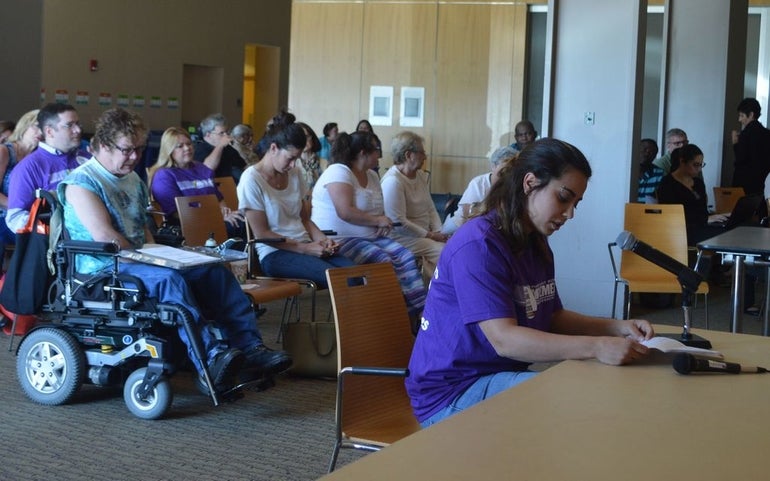Personal care attendants in Central Massachusetts said they were concerned how changes to state overtime policy could affect their ability to provide proper care for their patients.
The Baker Administration has put forth new overtime regulations for personal care workers. PCAs can now only work more than 40 hours a week — with some exemptions of up to 60 hours — if the client they serve receives overtime approval.
The requirements were established for MassHealth members in order to avoid unnecessary utilization of PCA overtime, according to a public hearing notice from the state. But personal care attendants, many of whom work more than 40 hours a week on a regular basis, said they were concerned that these changes could make life difficult for their elderly patients.
Patients can apply for overtime approval if they live with their sole PCA, or if they need more than 40 hours per week of care from the same aide for a short period of time while they search for additional caregivers.
Having more than one PCA can take a toll on patients, many of whom have had the same caregiver for years, said Carmen Scaffidi, a PCA from Shrewsbury.
“Many of those consumers have already established a relationship with a PCA, and then they have to get used to another person that is going to come, because that PCA can’t do it any longer — they can’t do 40 hours or more,” she said. “Those people — they have a tough time adjusting.”
Lisa Worster, a PCA who lives in Worcester, has one client and usually works overtime, because it has been difficult for her client to find another reliable caregiver.
“I would have to go to her house and do it for free, because I can’t leave her stranded, because she really needs me,” Worster said.
The PCA program has grown 23 percent from $574 million to a projected $704 million for fiscal 2017. To ensure a sustainable program, the administration is implementing an overtime management policy effective Sept. 1, and is working to ensure a smooth transition, said Michelle Hillman, spokeswoman for the state Executive Office of Health and Human Services in a written statement. The overtime management policy does not change or reduce the total number of PCA hours a member is authorized to receive.

